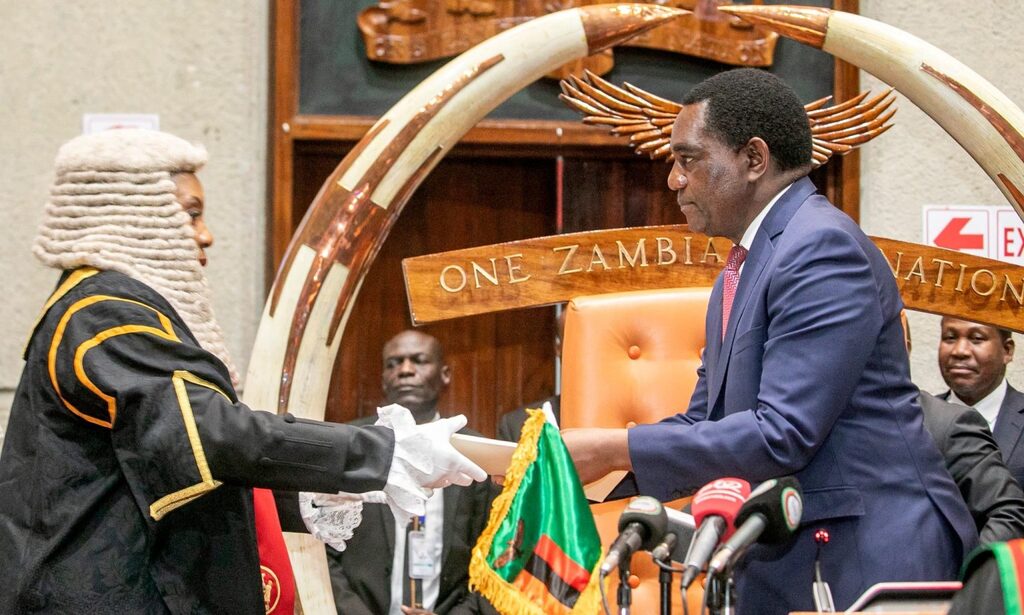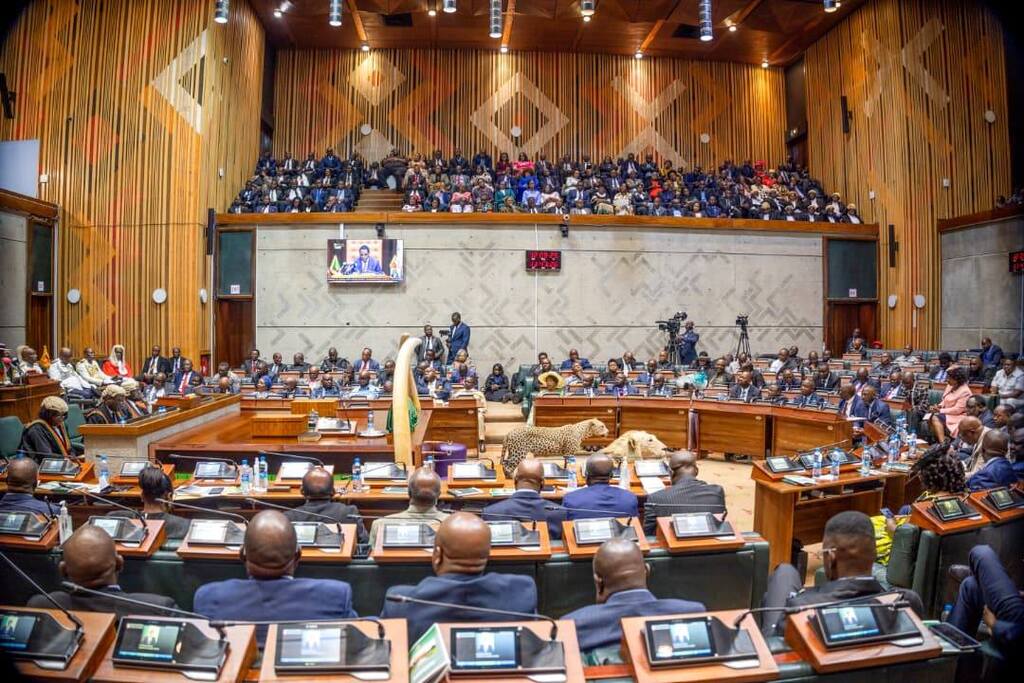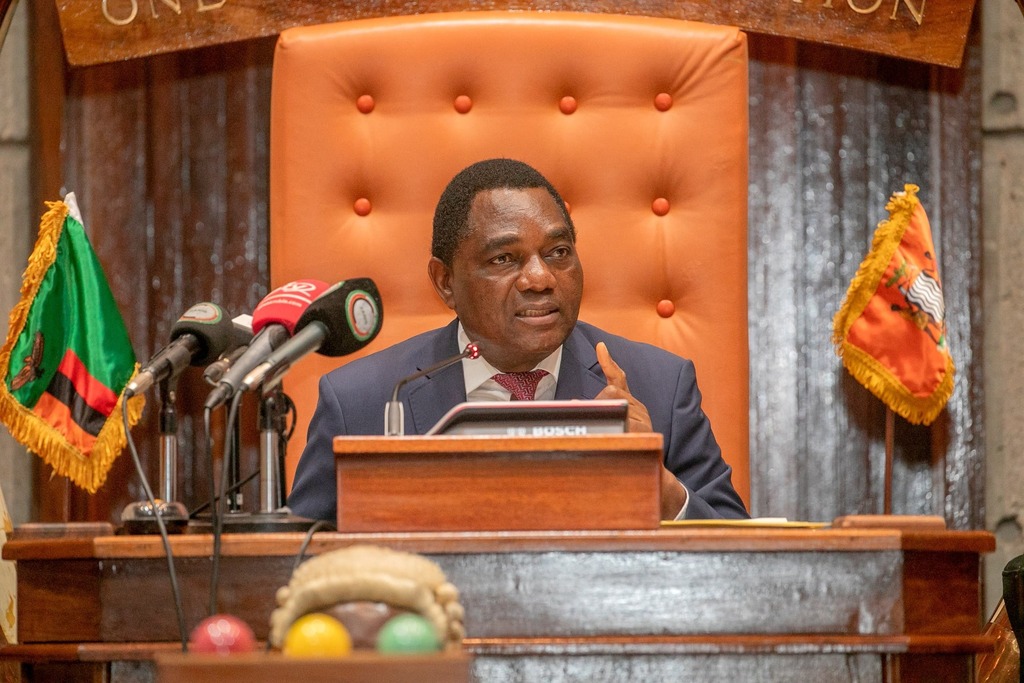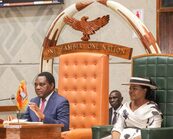
Wednesday, September 24, Lusaka, Zambia – The Jesuit Centre for Theological Reflection (JCTR) acknowledges President Hakainde Hichilema’s address to the Fifth Session of the Thirteenth National Assembly on 12 September 2025. Delivered under the theme “consolidating economic and social gains towards a prosperous, resilient and equitable Zambia”, the speech highlighted significant achievements, including debt restructuring, improved agricultural yields, and progress in social sectors.
The Jesuit Centre for Theological Reflection commends the government for key policy measures that reflect a strong commitment to social progress. Notably, the implementation of the free education policy has expanded learning opportunities for countless Zambian children, laying a foundation for long-term human development. The President’s firm assurance that no future government should reverse this policy demonstrates foresight and dedication to safeguarding access to education as a national priority. These strides, alongside gains in debt restructuring and agricultural production, deserve recognition as positive steps toward an inclusive and resilient Zambia. While these are important milestones, JCTR stresses that the real test lies in whether these gains translate into tangible improvements in the daily lives of ordinary Zambians.
Macroeconomic and Fiscal Realities
The President’s announcement that 92% of bilateral debt has been restructured is a major step in restoring credibility with international lenders through the G20 Framework. However, Zambia’s debt stock remains high, at over 117% of GDP, and fiscal space for essential services is still squeezed. Additionally, there is still an issue of the debt outside of the frame at about $1.33bn, which is only 10% restructured. Without stronger domestic revenue mobilisation and fairer taxation, the burden of adjustment risks falling disproportionately on households already struggling with high costs.
The stock market’s reported growth of 55.8% is encouraging, but Zambia’s capital markets remain shallow, with limited participation from key sectors such as mining. Meanwhile, private sector access to credit is constrained, stifling job creation and growth.
Food Security and Cost of Living
The bumper harvest of 2025 marks a recovery from the drought-induced deficit of 2024. Yet affordability remains a pressing issue. The JCTR Basic Needs and Nutrition Basket for August 2025 stands at ZMW 11,432.17 for a family of five in Lusaka, compared to average urban household incomes of ZMW 5,369. National food availability, therefore, does not automatically translate into household food security. Targeted policies on storage, processing, and nutrition are critical to ensure that production gains reduce hunger and malnutrition.
Social Protection and Human Development
While inflation has eased and fuel prices have declined, many households continue to face high living costs. Expanded social safety nets are welcome, but they must be designed as part of a long-term strategy to tackle structural poverty, not just temporary relief.
In health and education, progress is mixed. Gains in medicine stock levels and free education are undermined by governance gaps, procurement scandals, and inequities in access. The underfunding of the health sector relative to the Abuja 15% target and ongoing challenges in cancer treatment facilities highlight systemic weaknesses that require urgent attention. The President also mentioned that no subsequent government should remove free education, but this government has yet to enshrine it as a right in the Education Act of 2011 for secondary school education.
Energy and Livelihoods
The persistence of load shedding continues to undermine household welfare and business activity. While long-term energy investments are necessary, citizens need assurance that immediate measures are being taken to alleviate the daily hardships caused by unreliable electricity supply.
Governance, CDF, and Constitutional Reform
JCTR notes the President’s emphasis on Constituency Development Fund (CDF) as a decentralisation tool. However, repeated findings by the Auditor General and civil society show persistent weaknesses in utilisation, accountability and transparency. The call to link CDF oversight to pending constitutional amendments (Bill 7) raises concerns about a regression in the separation of powers and risks politicising decentralisation. JCTR reiterates that any reforms must strengthen accountability, not entrench patronage.
Progress in the fight against corruption, including improvements in perception indices, should not obscure ongoing realities. The Zambia Bribe Payers’ Index shows rising incidences of bribery in key public services, underscoring the need for systemic reforms rather than celebratory narratives.
The President’s address charts a hopeful picture of consolidation and resilience. JCTR’s role is to remind both government and citizens that statistics alone do not put food on the table, pay school fees, or guarantee medicines in clinics. As Zambia heads towards the 2026 elections, leadership must prioritise justice, equity, and the lived realities of households. Governing, not campaigning, is the immediate priority. JCTR remains committed to engaging government, Parliament, and civil society in the pursuit of a just Zambian society where national progress is measured by the dignity and well-being of every citizen.
Jesuit Centre for Theological Reflection, P.O. Box 37774, 10101 Lusaka, Zambia, Tel: 260-211- 290-410 Fax: 260-211-290-759 E-mail: info@jctr.org.zm or admin@jctr.org.zm. Website: www.jctr.org.zm Location: 3813 Martin Mwamba Road, Olympia Park, Lusaka.


Picture Credit: State House

Author: